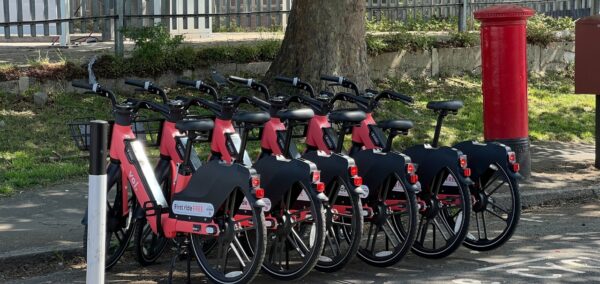
Leeds revealed to be one of the most congested cities in the UK
You won’t believe how long Leeds drivers spent sitting in traffic last year
Leeds has been revealed to be one of the most congested cities in the UK.
An analysis by Inrix has named Leeds the third most congested city in the UK, with drivers experiencing an average of 60 hours of delays per year. This has cost each driver an estimated £560.
According to the report, congestion has been calculated to have cost the city a whopping £240m in the past year.
Congestion in places such as Queen’s Road, Park Road and Cross Road has led to increased discussions about introducing trams to the city, the BBC reports.
Under the West Yorkshire Mass Transit system the Leeds Line, which will connect the city from the city centre to even Bradford, is proposed to be on the ground by 2028.

England’s capital has been crowned the city where drivers spend the most time sitting in traffic, with London commuters sitting in traffic for an average of 101 hours.
This was reported to be a two per cent increase from 2023, making the capital the most congested city in Europe.
According to The Yorkshire Evening Post, the report’s author and transportation analyst, Bob Pishue, said: “While the UK did see a slight increase in congestion again this year, overall congestion has remained steady. Roadworks in key corridors, such as M25 Wisely interchange, caused considerable traffic on a main artery into the capital.”
The report ranks on the basis of the delays’ duration and the size of each city’s population. Calculating on these bases, the average driver across the UK spent 62 hours in congestion last year, an increase of one hour from 2023.
Most Read
Mr Pishue said: “Interestingly, it was cities outside of the capital that saw the greatest increase in congestion with Manchester seeing a large increase, up 13 per cent.”
Bristol and Manchester came in second and fourth, amounting to around 65 hours and 61 hours of delays per driver, respectively.
While London only had a modest increase in the time lost, the city also ranked fifth in the world list, predominantly because of its “concentration of population, employment and economic activity”.
Talking about plausible solutions, a spokesperson for Transport for London, which is responsible for a network of red route roads carrying a third of the capital’s traffic, said: “We are committed to making sure Londoners can move around the capital as safely, sustainably and efficiently as possible.
“We support the movement of everyone across London and our investment in walking, cycling and public transport is making it easier to choose sustainable ways of travelling, helping to cut congestion.
“Our network includes some of the busiest roads in the country and we continue to invest in world-leading programmes to make sure roads are used as efficiently as possible.”


















